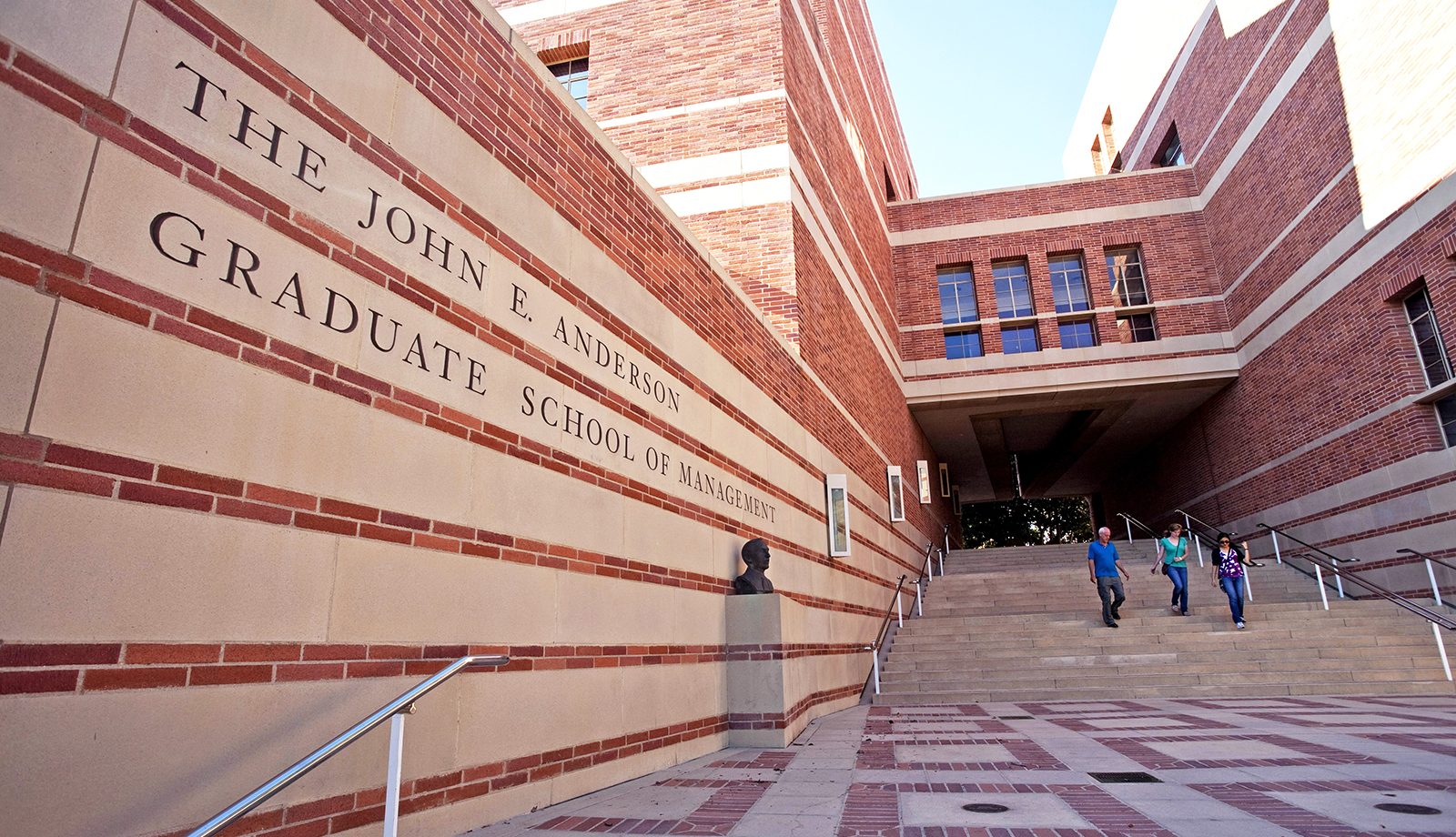Building and Managing a Global Enterprise – Key Considerations | 2020-21

Faculty

Prof. Carol Scott
Professor
Carol A. Scott is a professor of marketing and faculty director for the Executive Program at The John E. Anderson Graduate School of Management at the University of California, Los Angeles. She has taught in the Executive MBA program since its inception in 1982 and was on the faculty of The Ohio State University for three years prior to joining UCLA in 1977.
She was named the outstanding teacher at The Anderson School for the 1983-84 year by the MBA student body. From 1986 through 1994 she served the School in a variety of administrative positions and in 1985 was a visiting associate professor at the Harvard Business School.
Professor Scott’s research interests include marketing positioning strategies and customer analysis for marketing decisions. Her work has been published in marketing and social science journals, and she has served on the editorial boards of the Journal of Consumer Research, the Journal of Marketing Research, and the Journal of Marketing.
She has served as a consultant to a variety of profit and non-profit organizations on questions of marketing strategy, market positioning, and marketing effectiveness, and she often serves as an expert witness in litigation involving marketing questions. She was a member of the board of directors for Sizzler International, Inc. for six years, and presently serves on the board of United Online, Inc., the parent of Netzero, Juno, Classmates, and MyPoints.
Education
Ph.D. Marketing, 1975, Northwestern University
M.S. Management, 1972, Northwestern University
B.S. Education, 1970, University of Texas at Austin
Interests
Aerospace, Consumer Behavior, Corporate Renewal, Customer Analysis, Global Marketing, Marketing Strategy, Medical Marketing, Retailing, Trademarks, Marketing Trends

Prof. Filipe Caro
Professor
Dr. Filipe Caro joined the UCLA Anderson School of Management in 2005. His main research interests are related to decisions made under uncertainty with a strong emphasis on practical applications. In his PhD dissertation at MIT, he developed analytical models with demand learning for the dynamic assortment problem faced by fast-fashion retailers. This led to an ongoing collaboration with the Spanish apparel retailer Zara that made him a Franz Edelman Laureate in 2009. On the theoretical side, his work on product and price competition with satiation effects won the first prize in the 2010 INFORMS Junior Faculty Paper competition.
Some of his current research projects include carbon allocation in supply chains; coordination of pricing and inventory decisions; forecasting; and exploration versus exploitation problems.
Prior to receiving his PhD, Professor Caro worked as an instructor in the Industrial Engineering Department of the University of Chile. He taught courses in optimization, dynamic programming and stochastic processes and also worked on research projects involving natural resources, mostly in the forestry and copper industries. He continues to collaborate on a permanent basis with his colleagues in Chile.
At UCLA Anderson, Professor Caro teaches the MBA core course on operations and technology management and doctoral level courses on stochastic models in operations management. In 2007, he was awarded the George Robbins Assistant Professor Award that distinguishes excellence in teaching at the UCLA Anderson School.
Recognitions
2014 ENRE Best Publication Award in Natural Resources.
2013 Eric and “E” Juline Faculty Excellence in Research Award.
2013 ecch Production & Operations Management Award and New Case Writer Award.
2012 EURO Excellence in Practice Award, Finalist
2012 MSOM Meritorious Service Award
2010 MSOM Meritorious Service Award
2010 INFORMS Junior Faculty Interest Group Paper Competition, First Prize
2010 Revenue Management and Pricing Practice Award, Finalist
2009 Franz Edelman Laureate
2008 Deloitte Consulting Award for Management Field Study Achievement
2007 Robbins Assistant Professor Teaching Award
Education
Ph.D. in operations management, 2005, Massachusetts Institute of Technology
Ind. Eng. In industrial engineering, (Profesional Title) 1999, University of Chile
B.Sc. in industrial engineering, 1998, University of Chile
Interests
Retailing, supply chain management, bandit problems, approximate dynamic programming, natural resources

Prof. Mark Garmaise
Professor
Dr. Mark Garmaise’s primary research interests are in the areas of corporate finance, real estate, entrepreneurship and banking. With his co-author Tobias Moskowitz, he received the 2004 BGI Brennan Award for the best paper published in the Review of Financial Studies and the 2005 BGI Brennan Runner-up Award for the best paper published in the Review of Financial Studies.
Dr. Garmaise teaches the core corporate finance course and an elective on venture capital and private equity. He was awarded the 2006 Eric and “E” Juline Excellence
in Research Award, the 2007 Citibank Teaching Award for most outstanding MBA teacher, the 2009 Fully Employed MBA Teaching Excellence Award, the 2011 Full-time MBA Teaching Excellence Award and the 2012 Neidorf Decade Teaching Award. He has published in the Review of Financial Studies, the Journal of Finance and the Quarterly Journal of Economics. Dr. Garmaise taught at the University of Chicago, Graduate School of Business, before joining the faculty at UCLA Anderson.
Education
Ph.D. in finance, 1998, Stanford University
A.B. in mathematics and philosophy, magna cum laude, 1994, Harvard College
Interests
Corporate finance, real estate, financial contracting, banking, entrepreneurship
Course Learning Objectives:
- Identify key benefits of globalizing a company’s marketing efforts.
- Evaluate a specific company’s global market opportunity, using an established six-step model (organizational readiness, product suitability, country identification, industry and target-market assessment, local partner selection, and sales potential estimation).
- Justify a recommendation on which elements of the marketing mix (product, positioning, brand, packaging, advertising, pricing, sales promotions, public relations, and distribution) need to be localized, based on the maxim “Globalize as much as you can; localize as much as you have to.”
- Describe how a particular company achieves both “fit” and “focus” as it pursues its business activities.
- Analyze a particular company to determine how its choices with regard to management, design, sourcing/manufacturing, distribution, merchandising, and store operations align with the company’s strategy.
- Calculate the Net Working Capital needs of an expanding company.
Syllabus
Learning Objectives:
- Identify key benefits of globalizing a company’s marketing efforts.
- Evaluate a specific company’s global market opportunity, using an established six-step model (organizational readiness, product suitability, country identification, industry and target-market assessment, local partner selection, and sales potential estimation).
- Justify a recommendation on which elements of the marketing mix (product, positioning, brand, packaging, advertising, pricing, sales promotions, public relations, and distribution) need to be localized, based on the maxim “Globalize as much as you can; localize as much as you have to.
Module Components:
Video Lectures:
- Motivation and Evaluation of Global Opportunities
- Global Opportunity Assessment
- Glocal Marketing
Readings:
- Global Marketing – Driving Expansion
- Six Classic Distribution Paradigms for Global Marketing Channel Strategy
- Globalization, Converging Commonality and Business Strategy
Case Study:
- FreeForAll Healthy Snacks (Global Marketing)
Quiz:
- Global Marketing Managemen
Learning Objectives:
- Describe how a particular company achieves both “fit” and “focus” as it pursues its business activities.
- Analyze a particular company to determine how its choices with regard to management, design, sourcing/manufacturing, distribution, merchandising, and store operations align with the company’s strategy.
Module Components:
Video Lectures:
- Key Concepts of Global Strategy and its Execution
- Zara Case Study – A lesson in Execution
Readings:
- Ensuring Growth through Focus
- Global Corporate Social Responsibility
Case Study:
- Simpler Shoes (Global Operations)
Quiz:
- Global Operations Management
Learning Objectives:
- Calculate the Net Working Capital needs of an expanding company.
- Using a given set of facts, determine if purchasing insurance at a quoted rate would be an effective risk-management strategy.
Module Components:
Video Lectures:
- The Importance of Liquidity Management
- Understanding and Ensuring Risk Management
Readings:
- Managing the Liquidity Crisis
- Managing for Global Financial Risks
Case Study:
- Simpler Shoes (Global Finance)
Quiz:
- Global Financial Management
Support
Please email [email protected] for any support required with respect to the program, course or platform.
